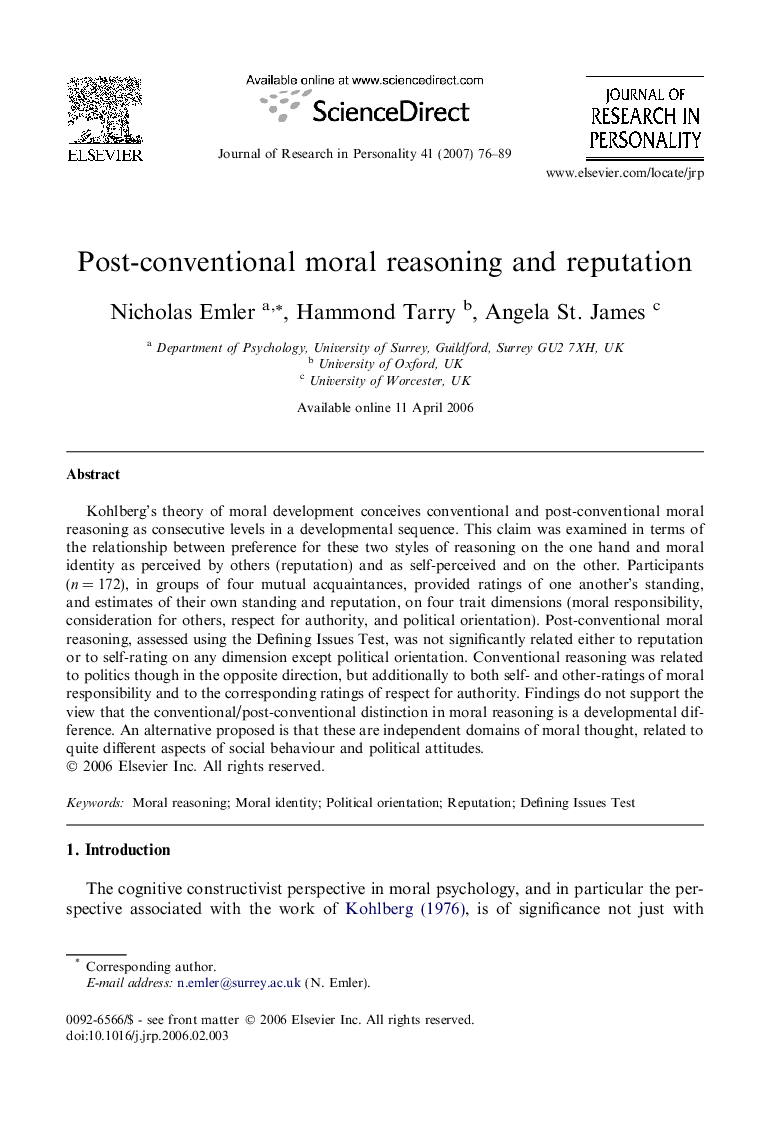| Article ID | Journal | Published Year | Pages | File Type |
|---|---|---|---|---|
| 952176 | Journal of Research in Personality | 2007 | 14 Pages |
Abstract
Kohlberg's theory of moral development conceives conventional and post-conventional moral reasoning as consecutive levels in a developmental sequence. This claim was examined in terms of the relationship between preference for these two styles of reasoning on the one hand and moral identity as perceived by others (reputation) and as self-perceived and on the other. Participants (n = 172), in groups of four mutual acquaintances, provided ratings of one another's standing, and estimates of their own standing and reputation, on four trait dimensions (moral responsibility, consideration for others, respect for authority, and political orientation). Post-conventional moral reasoning, assessed using the Defining Issues Test, was not significantly related either to reputation or to self-rating on any dimension except political orientation. Conventional reasoning was related to politics though in the opposite direction, but additionally to both self- and other-ratings of moral responsibility and to the corresponding ratings of respect for authority. Findings do not support the view that the conventional/post-conventional distinction in moral reasoning is a developmental difference. An alternative proposed is that these are independent domains of moral thought, related to quite different aspects of social behaviour and political attitudes.
Related Topics
Life Sciences
Neuroscience
Behavioral Neuroscience
Authors
Nicholas Emler, Hammond Tarry, Angela St. James,
